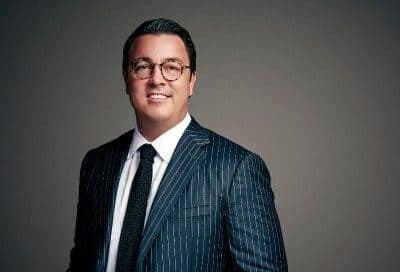Pennsylvania invests an additional $8.2 million in ByHeart baby formula plant to scale up business
June 12, 2022Elon Musk tells employees his plan to hit 1 billion users
June 16, 2022By Verne Harnish
Greg Alexander achieved a $162 million exit from his management consulting firm, Sales Benchmark Index (now known as SBI Growth Advisory), by using the Scaling Up platform for growing a company. Now, after selling his stake to a private equity firm, he’s helping other boutique professional services firms to scale up.
Alexander, based in Dallas, co-founded Sales Benchmark Index—which specialized in sales effectiveness in the B2B space—in 2006 with his Georgia Tech classmate Aaron Bartels to bring the science of benchmarking to the art of sales. Bartels, an engineer, helped Alexander realize his vision for applying the science of benchmarking to create a revenue-growth methodology, and the company productized its ideas in a suite of automation tools. The co-founders marketed their offerings to clients in large global companies and private-equity backed firms—and found many takers.
“What they had in common is a heavy investment in a direct sales force,” says Alexander. “They hired us to help improve the productivity of their sales team and generate a higher ROI on their investment.”
One linchpin of their successful exit was using the Scaling Up platform, which they embraced from about 2012 onward. Alexander, a former sales lead at a big tech company, found that the platform helped him to grow as a leader as he was developing his team. “When I started the firm, I wasn’t classically trained to be a founder,” he says. “We were figuring things out along the way.”
Tapping the power of Core Values
Developing a clear set of Core Values—such as “How far you go is based on how bad you want it” and “Celebrate failure”—helped Alexander to hire the people he needed to scale the company
“We made sure that all of the hiring, firing, promotions, recognition, rewards—everything was tied to the Core Values,” says Alexander. “That dramatically improved the culture of the company. We built an organization that had very little employee turnover.”
Alexander would also test potential hires for qualities like resilience. One of his tests was to arrange to meet them at a restaurant for lunch but not show up. “They would call me from the restaurant,” he recalls. “ I’d say, ‘No I changed my mind,’ and ask them to meet me somewhere else. They’d get in an Uber and travel over there. I’d measure how frazzled they were.”
Alexander wasn’t doing it to play mind games. “Often times in consulting, you’d get put in positions that would make you uncomfortable,’ he says. “You had to be your best when it matters the most.”
Sales Benchmark Index inspired employees to perform from Day One with a unique onboarding process. “The first day on the job, the employee would be a consultant on project with a client,” says Alexander. “There was no 90-day gestation period. Within a week, an employee had to stand up in front of the client and deliver one of the presentations.”
Putting the One-Page Strategic Plan front and center
Once Alexander and his leadership team completed the One-Page Strategic Plan, he says, “that was the religion at our firm.”
The core strategy they developed was to build an elite boutique firm that had the chops to serve B2B clients. “The structure of our industry was that there were three major firms and a lot of small shops,” he explains. “Then there was a group of boutiques in the middle. Our strategy was to position ourselves as the best of the boutiques, so we could charge a premium for our services.”
Committing to daily huddles
To execute on that strategy, individual departments such as sales and marketing, delivery and service would hold daily huddles. The company also held monthly, quarterly and annual meetings.
“That structure allowed us to build a rhythm that worked for us,” he says. “Prior to that, it was management by chaos. We confused urgent and important all the time.”
High profits
With these systems in place, says Alexander, the company brought in about 3x the industry average for profits, with an 80% gross margin.
“We had a different kind of cash problem—what to do with all of the cash,” he recalls. “We invested in growth substantially.”
As a result, the company had a compound annual growth rate of 30% annually for a decade. He sold his stake in the firm in 2017 for about 11x EBITDA.
Alexander is now onto his next pursuit, growing Collective 54, a community to help boutique professional services businesses in industries such as accounting, advertising, financial services, IT services, legal and marketing to scale up. The 54 refers to the companies inside of NAICS code 54.
Launched in January of 2020, it offers peer-to-peer mentoring and programming for founders and owners in companies with 25 to 250 employees, sharing the best practices of his own successful scale-up and others in the space. “We focus on what the quarter of 1% have done,” says Alexander. That’s a great place to start if you want to build an army of scaleups.




